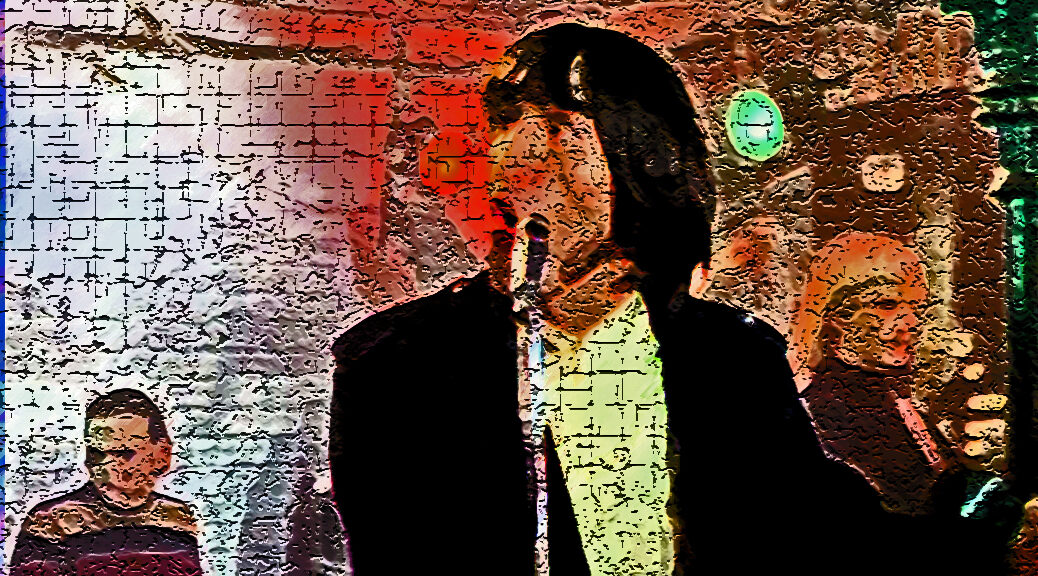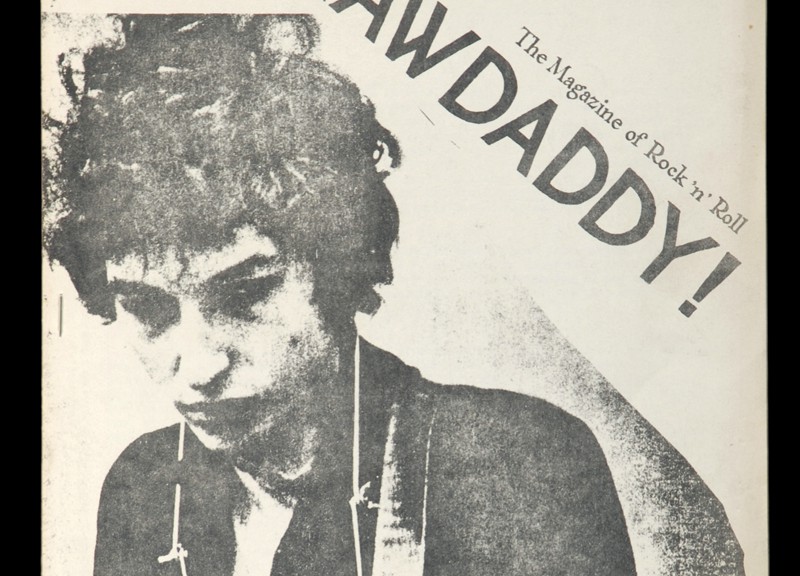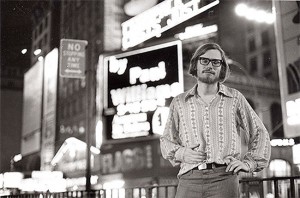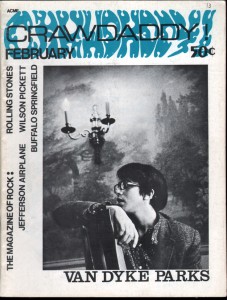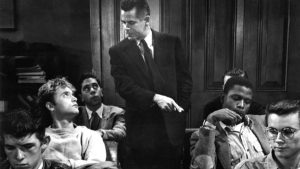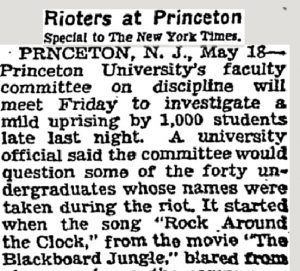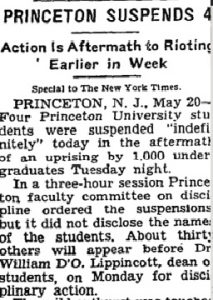Aquarian Family Festival
23 – 24 May 1969
San Jose, CA
1969 festival #6
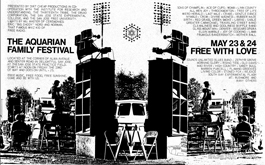
Aquarian Family Festival
Not just Woodstock
Mention the words festival and 1969 and most people will respond Woodstock. That is a sensible association as too would be the word Altamont. However, dig around a bit and you’ll find that 1969 is spangled with rock festivals.
May 23 marks the first of them. In fact there were three that occurred that weekend, two of which were less than a mile apart.
On May 18 – 19, 1968 The Northern California Folk-Rock Festival had been held. It was controversial because of the several “announced” bands had not actually been booked and nearly 1,000 attendees experienced PCP drug reactions.
Dennis Jay
The following year when the 1969 Northern California Folk-Rock Festival was announced, Dennis Jay (of the Drug Crisis Intervention group), members of San Jose’s Free University, the Institute for Research and Understanding, and the Druid Corporation (a musicians collective) announced a counter-festival: the Aquarian Family Festival. It was a free concert.
While free concerts were not unheard of, major free concerts were rare. Any actual free concert fed the idea that music should be for free, not something to be paid for. Such an idea doppled forward to that famous August weekend in Bethel, NY.
Another unique facet of the Aquarian Family Festival was that camping was permitted so that attendees could stay on site for the two days. Perhaps Michael Lang read about that, too?
Great line-up
Since the Aquarian Family Festival wasn’t recorded or filmed, it lives in obscurity like most of the many other 1969 festivals. Those facts should not deny its just place in festival history.
Here is the not-too-shabby list of performers for this festival and keep in mind that the Northern California Folk-Rock Festival was happening simultaneously. Interestingly, Jefferson Airplane appeared at both. Most of the bands were local and there are so many because one of the stipulations was that the music had to be continuous. (*would play at Woodstock)
|
|
Amphetamine Gazelle
I hope Mad River played “Amphetamine Gazelle.” And many thanks to Metroactive.com. Also, the featured image on top is of the Chocolate Watchband. Who knew!
Aquarian Family Festival
Ace of Cups
The first band listed (alphabetically) is the Ace of Cups, an all-female band from the Haight. Here’s a report about them.
Aquarian Family Festival
I always enjoy getting someone’s first-hand account about an event I blog about. I got this email from Roger Desmond who was at the festival:
It was a bunch of us talking. We thought the fairgrounds festival was a rip-off for many reasons. Mainly, the promoter, Bob Blodgett promised that Jimi Hendrix and Led Zeppelin would play but we found out they were booked at another venue at the same time. Soooo we basically contacted the bands and told them we wanted to do a free concert and wham! It was happening. As a San Jose State student I was able to help secure the venue. Ironically, Jimi showed up and checked it out, and would have played but the amps he needed were not present. But the bands that DID play were amazing!
As major organizer Dennis Jay said “Its what we always wanted!”
Aquarian Family Festival
Next 1969 festival: Northern California Folk-Rock Festival

